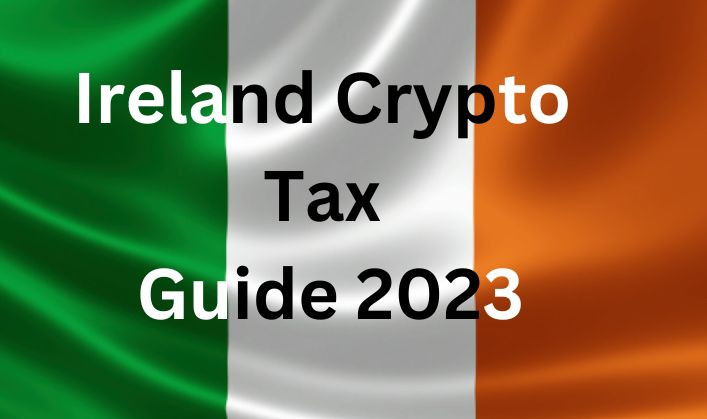7 November 2025
Guide to Cryptocurrency Taxation in Ireland for 2023
Some people may be curious about the tax treatment of Cryptocurrency in Ireland. If you live in Ireland, you'll want to check out our Crypto tax guide since it covers everything from Crypto Capital Gains Tax and Income Tax to Crypto Gift Tax, how to calculate and submit your Crypto taxes to Revenue, and even how to assist you avoid paying tax on Cryptocurrency before the closing date!
Also Read: An Ultimate Guide To Crypto Tax In Spain For 2023
Taxation of Cryptocurrencies in Ireland may be tricky. The purpose of this all-encompassing guide on Crypto taxation in Ireland is to assist taxpayers get a deeper familiarity with their responsibilities and the process of submitting their Crypto taxes, including any changes to the laws.
Also Read: Top 5 Cryptocurrency Exchange In Sweden
Does Ireland tax Cryptocurrency?
In Ireland, Cryptocurrency is subject to taxation. There is no misunderstanding about whether or not Cryptocurrency in Ireland is liable for Income Tax or Capital Gains Tax, since both are explicitly stated as such by the Revenue Commissioners, or simply Revenue. Organizations that engage in Bitcoin transactions may also be subject to Corporation Tax, and in certain cases, Capital Acquisitions Tax.
Non-Taxable Cryptocurrency Transactions in Ireland
The situation for Irish Cryptocurrency traders and investors has improved. A number of actions are exempt from taxation in Ireland. Things like purchasing Cryptocurrency, keeping it, as well as exchanging it across accounts owned by an identical person fall under this category.
How much Crypto Tax do Irish Citizens pay?
How much tax you owe on Cryptocurrency is determined by a number of factors, including the kind of transaction you did, the applicable tax rate, as well as the sum you earned. Based on where you sit on the Income Tax scale, you might wind up paying 20% or 40% on any activities that trigger that tax. On the other hand, the Capital Gains Tax rate is a flat 33% for all transactions.
Is Your Crypto known to Irish Tax and Customs?
However, contrary to common belief, Cryptocurrencies can be traced with relative ease and are not nearly as hidden as several people think they are. Because of the increased oversight of the Cryptocurrency market and the digital asset investing industry, practically all exchanges now need a Know-Your-Customer (KYC) identity application from their customers before they can make any Bitcoin purchases. The Irish Tax and Customs Office will very certainly have your customer records from any trade that necessitated this verification. The same is true for withdrawals to external wallets; because of the public nature of blockchain data, it is easy to trace funds as they move from an exchange account to an external wallet.
Due to the EU's 6th Anti-Money Laundering Directive, organizations that deal with capital must comply with new rules requiring the verification of their clients' identities before providing any financial services. The Irish Tax and Customs Office will be able to access your data even if you register for an exchange in another EU nation because of this directive's requirement that data be shared throughout EU member states. One move towards tougher regulation of Cryptocurrency ownership and trade is the European Commission's proposed Directive on Administrative cooperation (DAC8). In order to combat tax evasion and fraud, the planned amendment would, within the next year, make more information on Cryptocurrency owners available to financial authorities throughout EU member states. After this takes effect, the Irish Tax and Customs Office may be able to do a more detailed search to determine whether or not a certain individual has Cryptocurrencies, along with details about their holdings, transaction history, as well as withdrawal addresses, according to DAC8.
Reporting Cryptocurrency Taxation
With respect to your Cryptocurrency tax obligations, there are a few important dates in Ireland to keep in mind. Ireland's fiscal year spans from 1st January until 31st December, however there are two time periods you need to be aware of when calculating your Capital Gains Tax liability. The beginning of the first time frame is January 1 and ends on November 30. The tax payable on any Cryptocurrency sales gains must be paid by December 15 of the year in which they were earned. Timeframe two covers the days starting on 1st December and ending on 31 December. Taxes owed on Cryptocurrency sales gains must be remitted by January 31st of the next year. Lastly, by October 31st of the following year, you must file your tax return in which you report all of your Cryptocurrency income and profits for the fiscal year.
How to Stake Cryptocurrency in Ireland?
Regarding Irish tax law, there is presently no definitive staking instruction. But it's probably going to be handled the same way as Cryptocurrency mining. That implies that staking prizes are taxable at their fair market value at the time of receipt, and that any profits made from selling the Cryptocurrency are subject to capital gains tax using the same cost basis as when the Cryptocurrency was first obtained.
Disclaimer: The author’s thoughts and comments are solely for educational reasons and informative purposes only. They do not represent financial, investment, or other advice.






